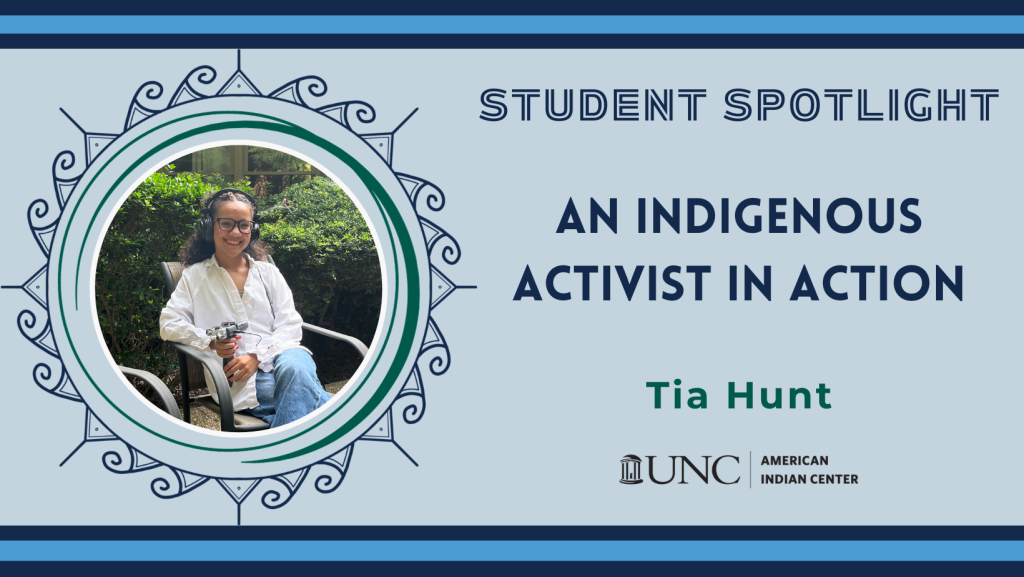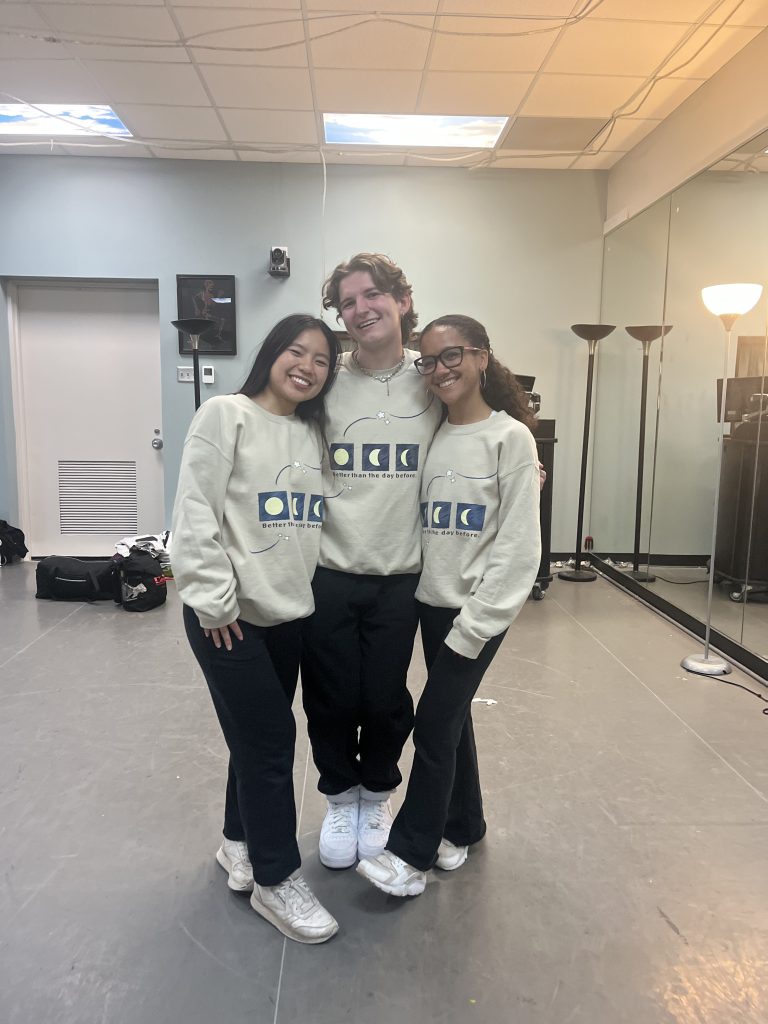 Tia Hunt, citizen of the Lumbee Tribe of North Carolina, is a current junior here at UNC-Chapel Hill pursuing a bachelor’s degree in American Studies and Religious Studies. Tia mentioned always being interested in the American South and Native America, and thus sees his work majoring in American Studies as an interdisciplinary way to look at both. With Religious studies, he said that it’s interesting how religion can adapt over time and have such a huge impact on people’s personal lives and communities at large.
Tia Hunt, citizen of the Lumbee Tribe of North Carolina, is a current junior here at UNC-Chapel Hill pursuing a bachelor’s degree in American Studies and Religious Studies. Tia mentioned always being interested in the American South and Native America, and thus sees his work majoring in American Studies as an interdisciplinary way to look at both. With Religious studies, he said that it’s interesting how religion can adapt over time and have such a huge impact on people’s personal lives and communities at large.
Tia initially sought out Carolina because of his interest in anthropology and the program’s excellent reputation. Remaining in close proximity to her family was yet another reason Carolina made sense. Many of Tia’s family members instilled in him the necessity of higher education. The presence of the Carolina Indian Circle (CIC) also played a key factor in why Tia selected to come to UNC. I really wanted a Native community when I came to college because I wasn’t able to grow up surrounded by one, Tia mentioned.
After graduating, Tia is interested in earning a Masters degree in Library Science with a focus on archives specifically benefiting Native People. Their preferred place of employment at that point would be a public or academic library. In the same breath, Tia also brought up the possibility of later obtaining a Ph.D. in American or Religious Studies to become a professor.
As a Native student, it’s easy for one to get stressed from overload from assignments and an abundance of activities. For self-care, Tia likes to dance, spend time with their roommates, and go on walks. They started dancing as a freshman in high school, continuing their journey by joining an on campus dance team called Moonlight Dance Crew. Tia mentions, Moonlight helps them stay physically active but allows them to be creative and to build community with other dancers on campus.
Tia is involved on campus with various political movement spaces that primarily focus on anti-imperialism, decolonization, and dismantling all forms of white-supremacy. She also facilitates a small discussion group where members think about the connections between their individual identities to politics of antiracism and abolition. She believes that a better world, where everyone’s needs are met, is possible, but it requires people to be politically active and involved in organizing.
Tia feels her biggest accomplishment in life is her political contributions on campus and the “community” she’s helped build over the past two and a half years. For two years, Tia interned with the Southern Oral History Program on campus. Taking an Intro to Southern Studies class inspired Tia to explore the realm of Oral History. Doing this work was a way to make history-telling more equitable and make sure everyone’s voices were being heard. During this internship, she learned the advantages and limitations of working in southern oral history, and how it can best be used to create projects that can represent entire communities. It was when Tia first had the opportunity to interview other Native People that he felt a personal connection to her academics. She found purpose behind her work. This past summer, Tia worked on a project called “Unrecognized Existence: The Tuscarora Nation of North Carolina’s Experience with Sovereignty and Governmental Acknowledgment”. With this project, she was able to interview many Tuscarora elders. She is currently seeking to gain hands-on experience working with archives and wants to do another oral history project before she graduates.
Eventually, Tia would like to return to his community to leave a positive impact and use his skills to help other Native people. Being in both American and Religious Studies has allowed him to learn about cultures, especially marginalized ones in academia, and he is excited to push that further with southeastern natives because we are underrepresented in both studies. Tia mentions that he hopes to use his degree outside of academia.
Tia thinks Lumbee culture isn’t physically nor orally well-recorded and mentions that Lumbees deserve just as much as other people to have histories to look back on and to have for the future. He desires to assist with sharing this information and knowledge far and wide. Education and public access to knowledge are super important to the functioning of our society. Currently, we are facing threats to libraries and education and I want to help contribute to making sure knowledge is circulated.
The American Indian Center (AIC) and CIC have been very helpful for Tia in the sense of gaining a Native community away from home and life-long friends. They mention that having Native faculty and staff on campus is comforting, knowing they have people who resonate with their identity and struggles. The AIC makes them feel very supported and like they have a family in every corner of this university.
Authors: Jalyn Oxendine & Qua Adkins


